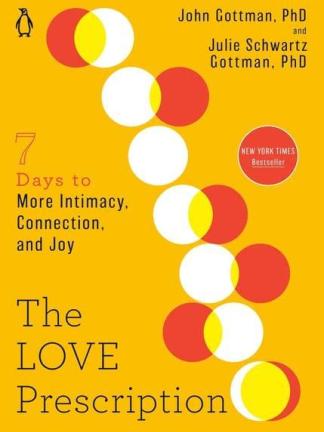- Home
- HaYidion: The Prizmah Journal
- AI and Tech
- On My Nightstand: Fall 2023
On My Nightstand: Fall 2023

Linus Baker, a certified rule follower and caseworker for the Department in Charge of Magical Youth, has been tasked to visit an island orphanage to determine whether six magical children pose a danger to the world. According to upper management, the children are the most dangerous, and it is up to Linus to assess whether the orphanage should be shut down. Once he arrives on the island, he meets the six children — a gnome, a wyvern, a blob, the devil’s son, a boy who turns into a Pomeranian, and a sprite. He also meets the odd master of the orphanage, Arthur Parnassus. Linus studies their “dangerous” behaviors and interactions and submits his weekly report to upper management.
Despite not wanting to get too attached, Linus begins to develop a fondness towards Arthur and the children. He begins to question his role in the Department in Charge of Magical Youth and how his actions could ultimately tear this family apart. He witnesses the hate and vitriol towards the children from people on the mainland, and he sees the unconditional love that Arthur provides to these children. This opens up his heart in unimaginable ways as he navigates what it means to truly belong.
Having lost my love for reading fantasy fiction in adulthood, I had low expectations for this book when it was recommended. However, I was struck by how much it meant to me. Wholesome, heartwarming, and hilariously witty, The House in the Cerulean Sea is a beautiful story about love, family, tolerance, and celebrating our differences.
Review by Chance Lattasima
The Love Prescription, by John Gottman and Julie Schwartz Gottman

About a year ago, I was listening to Brene Brown’s podcast interview with these world’s leading relationship scientists. I was fascinated by their playful yet scientific conversation about the little things that lead to more intimacy, joy and connection, and I picked up the book to see whether there might be areas of growth for me and my beloved.
The book is meant to be read in seven days, with a new habit to introduce into your relationship each day. The theory behind each actionable item is backed by years of scientific data from the Gottmans’ “Love Lab,” but the habits are simple and easy to immediately incorporate. One of the steps, “making contact,” includes asking questions like “What do you need from me today?” and turning toward your spouse to listen to the answer. Another step is simply saying “Thank you” and being specific, and meaning it. Other steps include non-negotiable date nights, touch and asking big questions.
Although I believe my husband and I have a strong marriage, I found that incorporating these habits with intention led to more time really listening and paying attention to each other. The program reminded us that with all the different roles and responsibilities we have, our relationship is the most important thing to both of us. I also believe some of the steps are useful in relationships with our adult children and other loved ones. This book is fantastic for anyone who wants to take their relationships to a higher level.
Review by Barb Gelb
Teams that Work: The Seven Drivers of Team Effectiveness, by Scott Tannenebaum and Eduardo Salas

As day school leaders, we are involved in many teams, leading some and participating in others. From early morning to late at night, we are constantly navigating the human dynamics of teamwork, and all of us have experienced that some teams are more successful than others. Tannenbaum and Salas give us a lens through which to zoom in on various aspects of those teams, reflect on them and move forward strategically for better success.
The authors call our attention to the most important drivers that lead to productivity and efficacy of all kinds of teams, and expose myths about what leads to great teamwork. They do an excellent job of taking the enormous body of research on teamwork and making it accessible to a wide audience.
The Day School Leadership Training Institute fellows are reading Teams that Work this fall, and the Prizmah staff joined the journey, engaging in a book discussion as part of our professional development. This book is on our nightstands, and I highly recommend that you add it to yours.
Review by Cheryl Maayan
Jews Don’t Count, by David Baddiel

When I visit places on vacation, domestic or abroad, I always make a point of stopping in a bookstore or two to bring back books that help me understand the place better. Often, I’ll also look for books about the local Jewish community, when relevant. Many years ago, on a tour around Ireland, I could not resist purchasing an obscure, charming collection of short stories titled Who Ever Heard of an Irish Jew?
Last year, on a trip to England, I came across this book with a loud cover shouting at me. As someone who loves reading anything about Jews and Judaism apart from antisemitism, I resisted this one, strolled around the rest of the bookstore, picked up some other choice reads... but came back to it. Perhaps it was all the impressive people lauding it on the front cover: historian Simon Schama, actor Stephen Fry, comedian Sarah Silverman, screenwriter Neil Gaiman, etc. As depressing as the subject is, the book promised to open a window onto life for Jews in England today.
I managed to avoid it until now, but October 7 and its aftermath led me back to it. The author is well known as a comedian, playwright and writer in England, someone who is open about his Jewish identity and makes it central to his material. His Judaism is quirky—atheist, though wore a kippah in his Jewish elementary school; Saturdays are for soccer games—but the only word on his Twitter account is, provocatively, “Jew.”
Written in a breezy and incisive style, the book recounts various ways that “Jews don't count,” that antisemitism is downplayed, overlooked or excused compared to other forms of hatred or oppression. Baddiel focuses mostly on the British left—a group with whom he largely identifies—but glances at the right as well, and comments on events in the US. Antisemitism is often ignored because Jews are considered “white,” “privileged,” “rich” and therefore don’t fall under the categories of oppression that are prized by the left. His examples, many taken from Twitter, are drawn from politics, entertainment, sports—the notorious association of certain soccer clubs in England and elsewhere with local Jewish communities leading to vicious antisemitic slogans and curses.
Although he doesn't focus on Israel particularly, we have seen all too clearly how easily antisemitism has morphed into anti-Zionism and become one and the same. Alas, the oldest hatred has returned with a vengeance and must be opposed wherever it surfaces.





